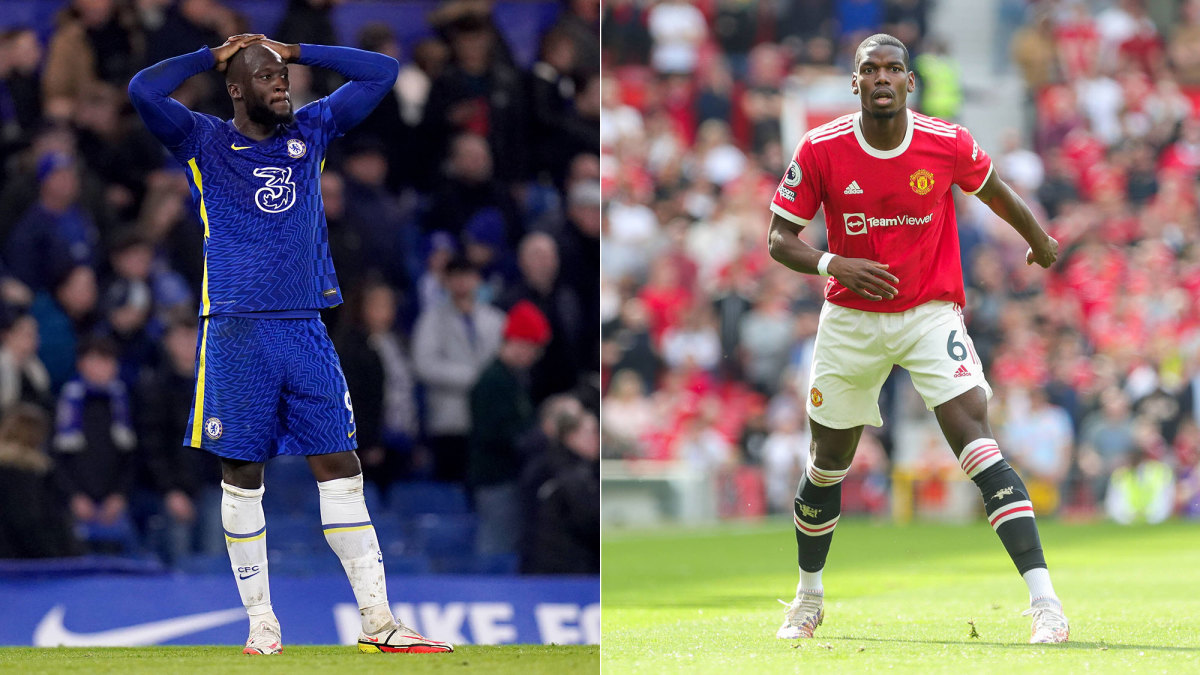Chelsea, Man United and When Known Quantities Don’t Pan Out as Hoped

Perhaps the biggest pitfall of signing players is that a club doesn’t quite know what they are like. Yes, it can analyze the data, perform various medical tests, watch video after video, but who are they, really? Will they adjust to a new life in a new city? Will they get on with their teammates and the coaching staff? Will their skills integrate into the system? No matter how much research a club does, there is always an element of the unknown. All of which makes it even odder that two of the biggest moves this summer transfer window will involve players leaving clubs to which they had returned for a second go-around, as Romelu Lukaku gets set to depart Chelsea on loan to go back to Inter Milan and Paul Pogba moves on from Manchester United to Juventus, also for a second time.
When Lukaku was signed last season—having initially left in 2014 as a 21-year-old after a solitary league start, despite impressive loan spells at West Brom and Everton—for what remains the second highest fee in Premier League history, $125 million, he seemed to be exactly what Chelsea needed. After the arrival of Thomas Tuchel the previous January, Chelsea had been well-organized and good enough in possession to win the Champions League title, but at times it seemed a little sterile.
Here was a player who had scored 47 goals over the previous two seasons in Serie A. He is big and powerful, offering an additional aerial threat, he had shown under Antonio Conte how adept he was at pressing, and had demonstrated great positional intelligence for Belgium, often pulling wide to the right to create space for Kevin De Bruyne. All of this seemed ideal. He could lead the line as a hybrid of a target man and a false nine, both winning headers and linking with Mason Mount and Kai Havertz. Chelsea for a time seemed as though it might become a third party in the Manchester City-Liverpool tussle for the title.

But Lukaku, after appearing promising on his debut against Arsenal, never quite seemed at home. There were four goals in his first four games back at Chelsea, but then 10 games without a goal. As he lost confidence, his first touch became heavier. Then injuries forced Chelsea to change shape and the supply from the wingbacks stopped. Frustrated, Lukaku gave an indiscreet interview to Sky Italia in December, and his relationship with Tuchel never really recovered. Last season, he started just 16 league games, scoring just eight goals in that time, his disaffection obvious.
Other players have had a poor first season after a big-money move and gone on to thrive, but that was never likely for Lukaku once Tuchel had made it clear that he had no desire to work with him any longer. Petr Čech, Chelsea’s technical and performance advisor, is believed to have wanted the two to try to work out their differences, but as he left the club this week as part of new owner Todd Boehly’s reworking of the backroom staff, Tuchel’s authority over personnel is essentially unchallenged.
At least with Lukaku, the failure of the transfer can be attributed to a personality clash and then a change of leadership. It’s obviously not ideal for a big new signing to leave so soon, but if Chelsea receives $10 million to loan him to Inter for the season, while offloading at least some of his wages, it’s not such a waste as it might have been.
But there is very little mitigation about Pogba’s second departure from Manchester United. He first left in 2012 as a 19-year-old who had made just three substitute appearances for the club in the league, a move that infuriated then-manager Sir Alex Ferguson, who felt the player had been persuaded to think only about money by his agent, the late Mino Raiola.
Pogba had four good years at Juventus before returning for what was then a world-record fee, since then he has cost United a huge amount of money in wages but performed only fitfully. The World Cup in 2018 showed what a player he can be, but he has performed to that standard only rarely at Old Trafford. At times the issue has seemed tactical: he prefers the ball in front of him so is unsuited to a modern attacking central midfield role, but using him deep seems like a waste of his talents, and he quickly seems to become frustrated.
It probably hasn’t helped that the club has been in such a state of drift, managers coming and going, none able to impose his vision given the lack of leadership at the top of the club. Losing Pogba essentially for free once was bad enough; to do so unequivocally again, 10 years later, smacks of institutional failure.
More Soccer Coverage:
